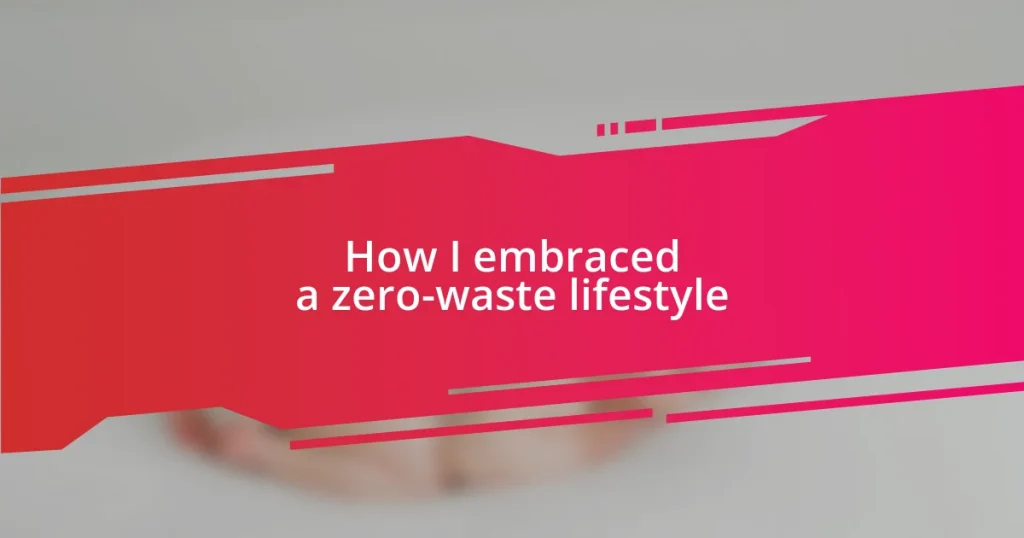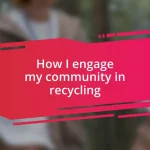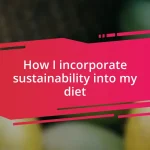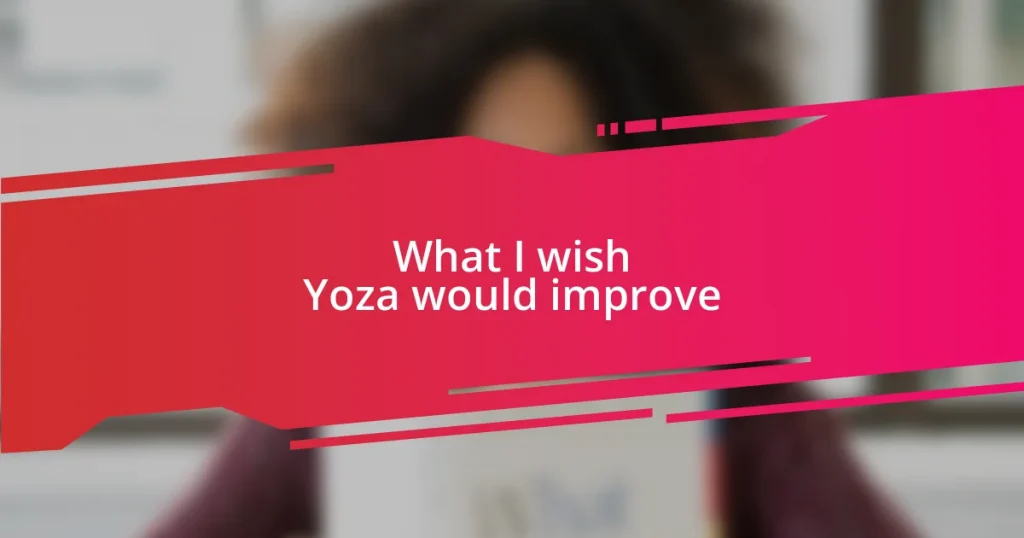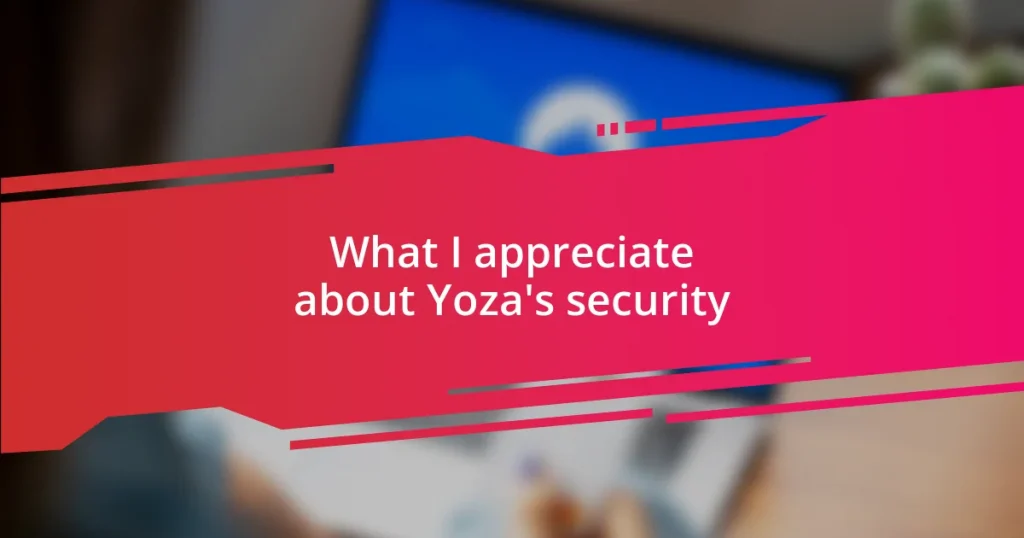Key takeaways:
- Embracing zero-waste principles involves a mindset shift focused on refusing, reducing, reusing, recycling, and composting, leading to conscious consumption.
- Assessing personal waste habits through tracking and meal planning revealed key waste sources, prompting motivated changes like reducing food waste.
- Setting achievable zero-waste goals and connecting with supportive communities helped maintain motivation and progress in the journey towards sustainability.
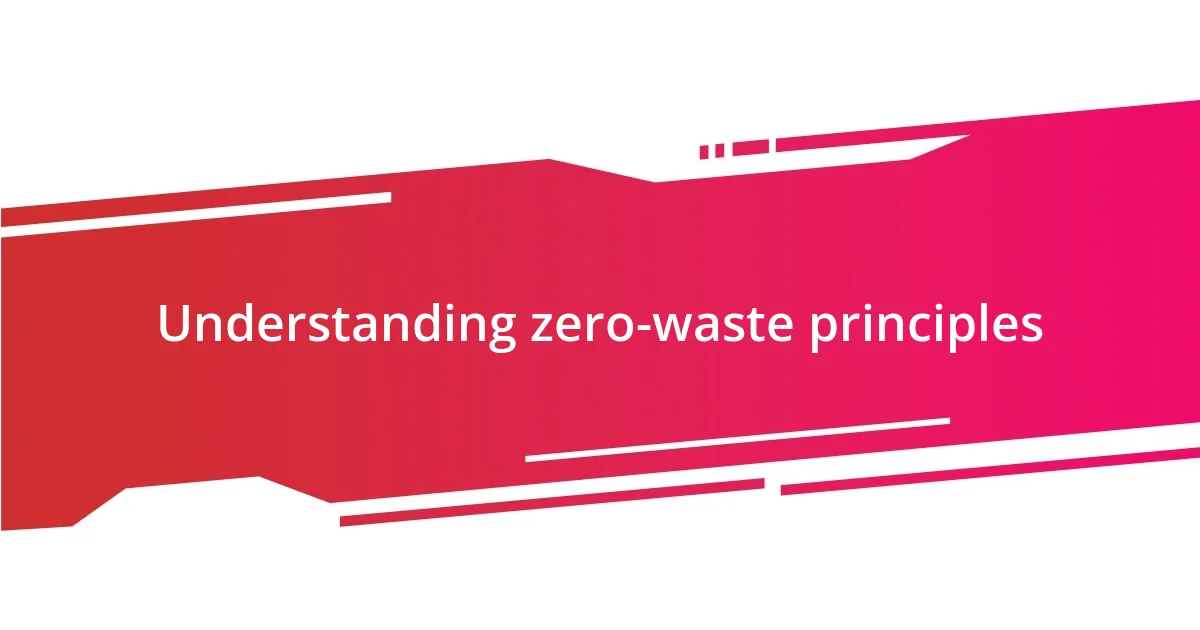
Understanding zero-waste principles
When I first delved into the zero-waste lifestyle, I was captivated by the idea of reducing my trash to almost nothing. It’s not just about recycling more; it fundamentally alters how we see our possessions and the waste we create. Have you ever stopped to consider how each product you buy contributes to a cycle that often ends in a landfill?
At its core, zero waste focuses on the principles of refuse, reduce, reuse, recycle, and rot. I found this framework incredibly helpful because it empowered me to make conscious choices about what I bring into my life—like refusing single-use plastics. It’s exhilarating to think, what if I could be part of a solution that not only benefits me but also the planet?
As I embraced these principles, I frequently reflected on my consumption habits. For instance, I used to be a frequent shopper, but adopting a zero-waste mindset led me to explore thrift stores and swap events. It was surprising how revitalizing it felt to give items a second life, ultimately changing not just the way I consume but also how I appreciate everything around me. Have you experienced anything similar in your journey toward sustainability?
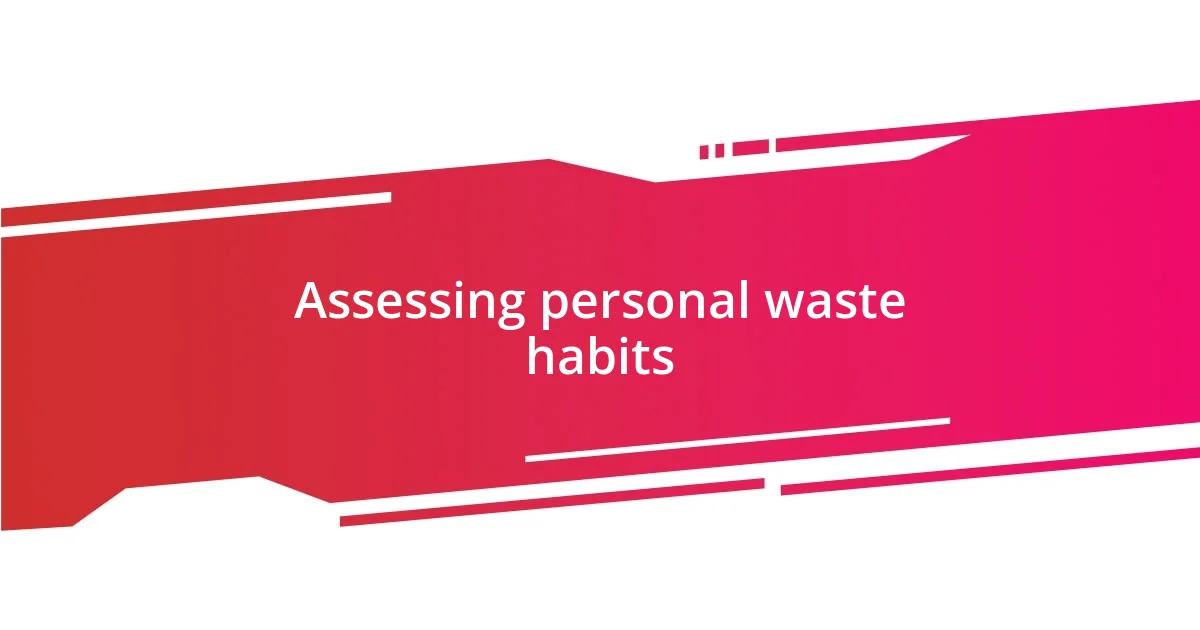
Assessing personal waste habits
Assessing my personal waste habits was an eye-opening experience. I started by keeping a waste diary to track everything I discarded over a month. This simple activity highlighted patterns in my consumption, revealing things like how many paper towels I used, or the frequency of takeout containers piling up. It was a bit unsettling, but realizing how much waste my everyday actions created was the first step in my transformation.
Comparing various waste categories helped me identify the biggest culprits in my lifestyle. For instance, I discovered that food waste was a significant contributor, especially from grocery items that often went unconsumed. With this insight, I leaned into meal planning, which was both a challenge and an exciting opportunity to get creative in the kitchen. I remember the first week I managed to reduce my food waste significantly; it felt like a personal victory.
From my experience, assessing waste habits isn’t just an inventory; it’s a journey of self-discovery. I found it reassuring to see my conscious efforts translate into less garbage on trash day. It motivated me to dig deeper and consider how every small choice I made could lead to a more sustainable lifestyle.
| Waste Type | Initial Quantity |
|---|---|
| Plastic Waste | 15 items/week |
| Food Waste | 4 pounds/week |
| Paper Waste | 7 items/week |
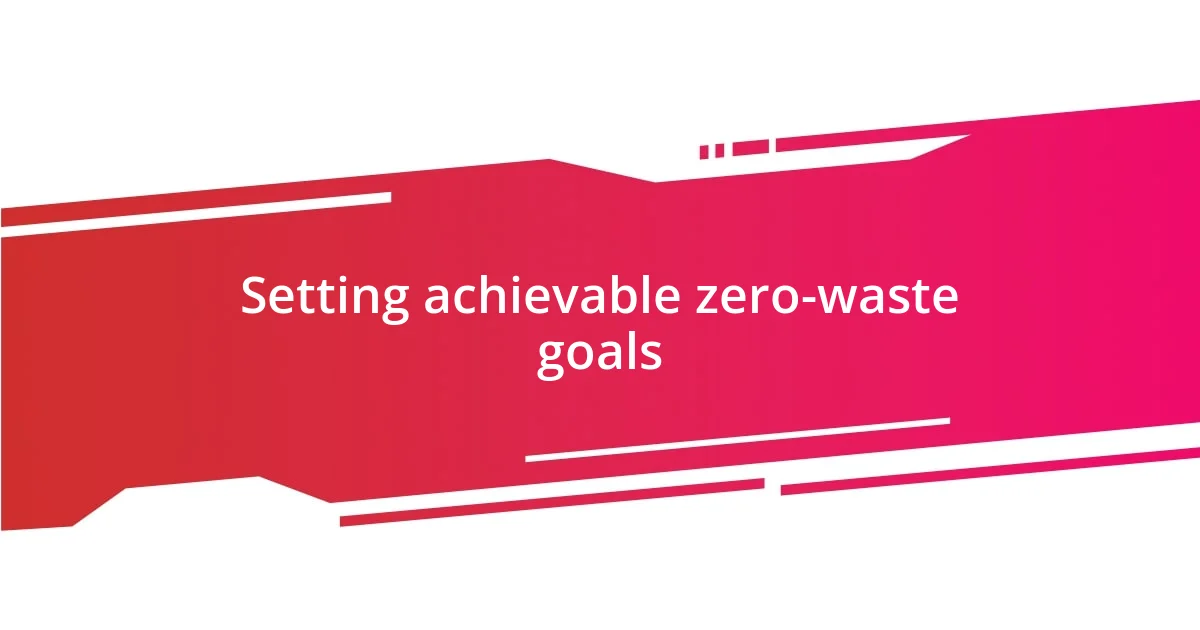
Setting achievable zero-waste goals
Setting achievable zero-waste goals is crucial for creating lasting change. I found that starting small made the journey feel more manageable. I picked one area of my life, like reducing bathroom waste, and focused on it for a month. This approach allowed me to celebrate tiny victories, making the experience feel rewarding rather than overwhelming.
Here are some tips I’ve relied on to set achievable goals:
- Start with one product: Choose a single item to replace with a zero-waste alternative, like a reusable shopping bag or bamboo toothbrush.
- Create a monthly challenge: Dedicate each month to a specific waste category, such as plastics or food scraps, and track your progress.
- Involve friends or family: Share your goals with loved ones, turning it into a fun group activity and keeping each other accountable.
I vividly remember when I committed to eliminating single-use coffee cups. Initially, it felt daunting, but after a few weeks of using my trusty reusable cup, it became second nature. Each time I felt that warm liquid in my hands, I felt a deep satisfaction knowing I was making a small impact.
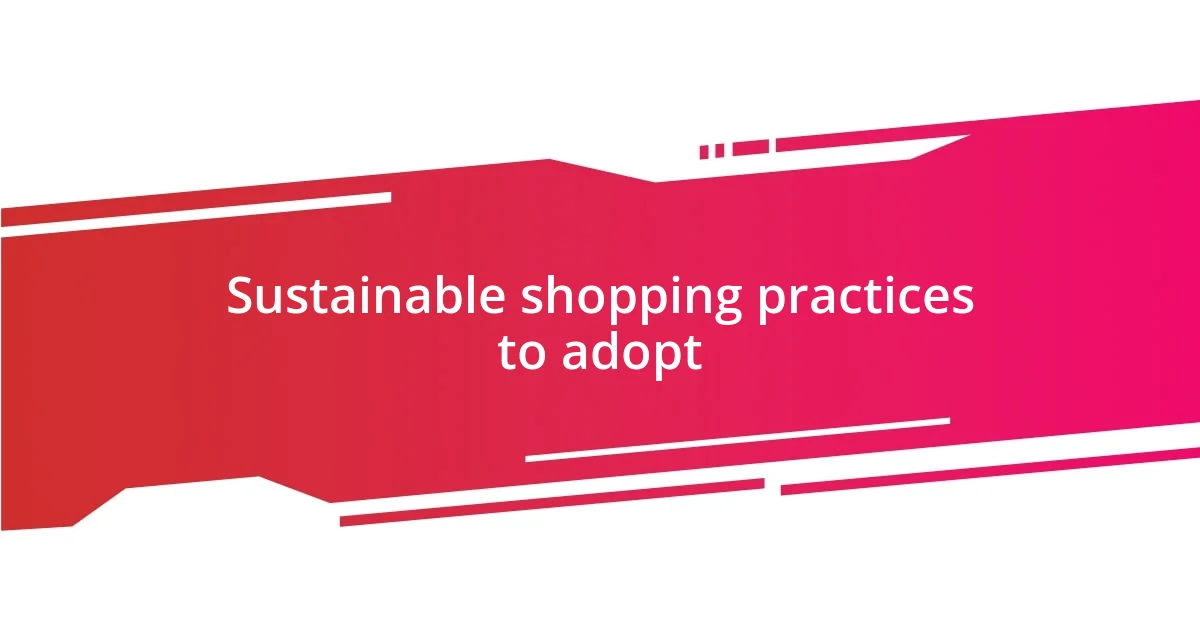
Sustainable shopping practices to adopt
Adopting sustainable shopping practices transformed the way I view both products and the environment. One simple yet powerful shift was using a reusable shopping bag for all my grocery trips. At first, I’d often forget the bag in my car, but once I made it a habit to keep a few in my kitchen, it became second nature. Can you remember the satisfaction of not receiving yet another plastic bag? That small moment felt like a victory every time.
More recently, I’ve leaned towards buying in bulk, which significantly reduced my reliance on packaging. Local health food stores or co-ops often offer bulk bins filled with grains, nuts, and even snacks. The first time I filled a reusable container with trail mix, I felt proud. Not only was I cutting down on waste, but I was also saving money, and who doesn’t love that? It’s amazing how knowing the origin of my food fosters a deeper connection with what I consume.
Another practice I’ve embraced is prioritizing products with minimal or no packaging. When I stumbled upon a brand that uses compostable packaging for their snacks, I felt a rush of excitement. Why should I have to compromise between convenience and sustainability? With innovative companies stepping up, it’s easier than ever to make environmentally-friendly choices without sacrificing quality or taste. Plus, sharing my finds with friends has turned shopping into a fun experience, as we collectively explore sustainable options together.
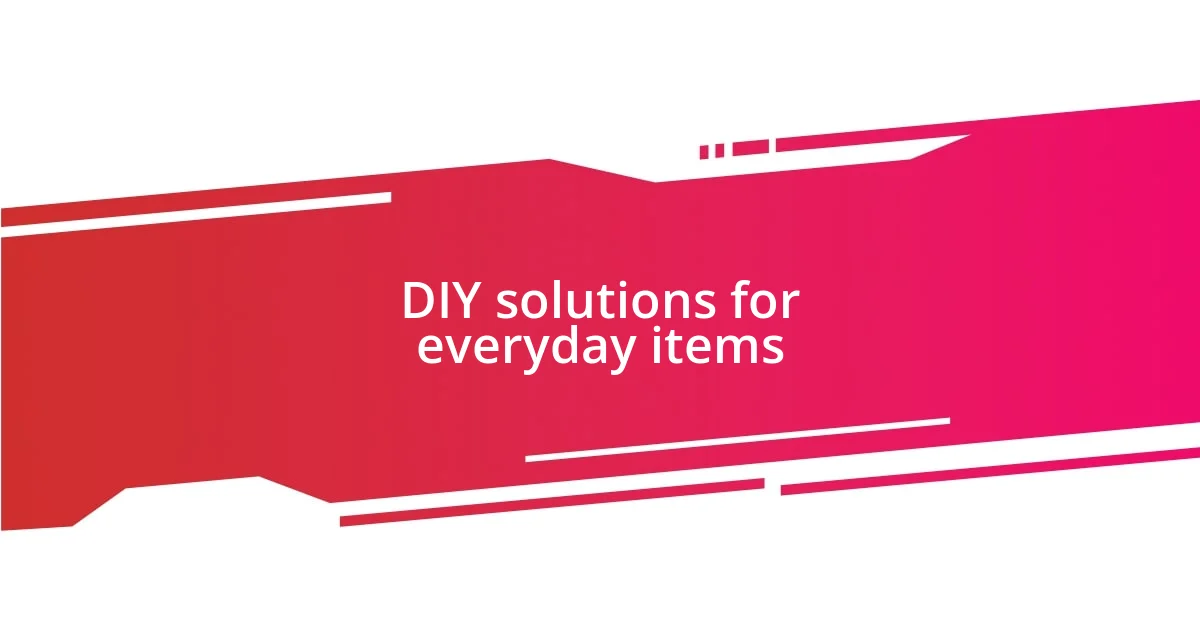
DIY solutions for everyday items
One of the most rewarding parts of my zero-waste journey has been creating DIY solutions for everyday items. For instance, I used to dread buying cleaning products that came in plastic bottles. So, I turned to homemade cleaners, mixing vinegar and baking soda. It not only cut down on plastic waste, but knowing I was using safe ingredients gave me peace of mind. Have you ever felt that satisfaction of cleaning your home with something you made yourself?
I also found joy in making my own reusable produce bags from old T-shirts. When I discovered how simple it was to repurpose something that would otherwise sit unused, I felt a wave of creativity wash over me. Not only did it reduce my reliance on plastic bags, but it also sparked conversations at the farmer’s market. People would ask where I got them, and I would proudly share my little project. Have you ever thought about how small actions can make such a big impact?
For personal care, I embraced the art of making my own body scrubs. It started as a fun experiment in my kitchen, blending together coconut oil, sugar, and a splash of essential oils. The first time I used it, I was amazed at how luxurious it felt—just like at a spa! I couldn’t help but smile, thinking about how much waste I avoided by not buying pre-packaged products. Isn’t it empowering to know that a little creativity can lead to both indulgence and sustainability?
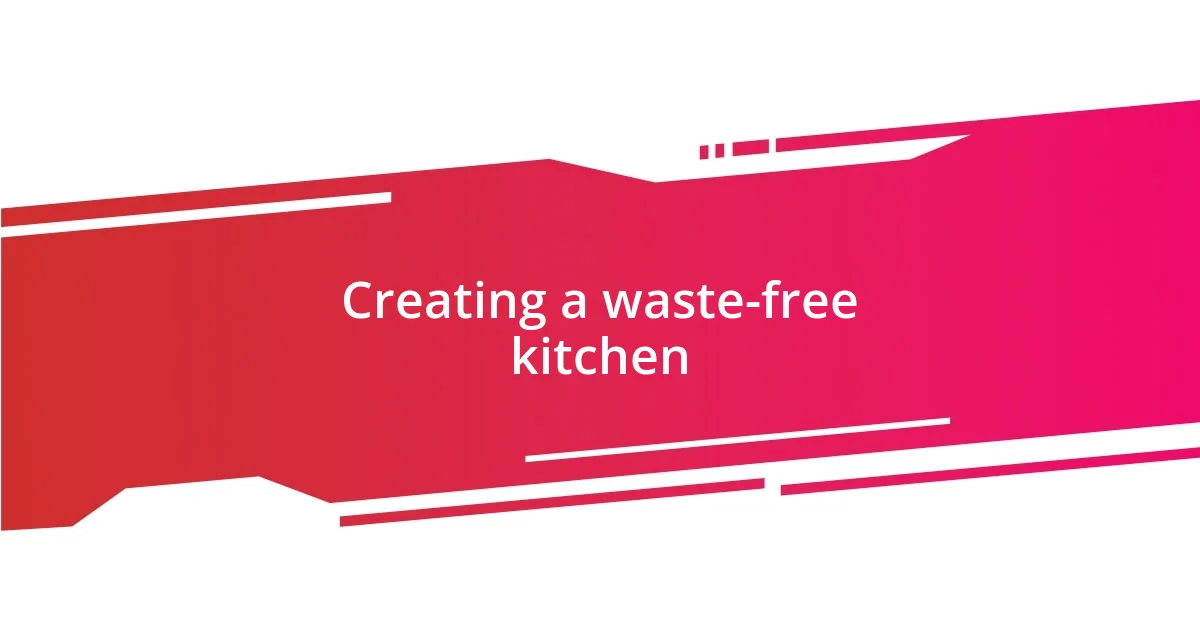
Creating a waste-free kitchen
When I decided to create a waste-free kitchen, I started small by assessing what I already had. I took inventory of my pantry, identifying items that came in unnecessary packaging. It struck me how much single-use plastic was lurking in there! I slowly replaced these items with bulk purchases, transferring them into glass jars which, oddly enough, added a delightful aesthetic to my kitchen. Doesn’t a well-organized space make cooking feel more inviting?
I also made the switch to cloth napkins and reusable kitchen towels, which was surprisingly liberating. Letting go of paper towels felt like a freeing gesture that aligned with my commitment to sustainability. There’s a simple pleasure in folding a soft, colorful cloth instead of tossing away a single-use item. Plus, I can’t tell you how many times guests complimented my napkins, which always opens up a conversation about eco-friendly living. Have you ever been surprised at how small changes can spark meaningful discussions?
One of my favorite kitchen transformations was replacing my plastic wrap with beeswax wraps. After I first used one to cover a bowl of leftovers, I was amazed by how effectively they preserved my food while being compostable afterward. It felt great to know that I was contributing less to the landfill. Have you ever felt that thrill of making a choice that benefits both your kitchen and the planet? Each time I reach for my beeswax wrap, it’s a gentle reminder of my commitment to a waste-free lifestyle.
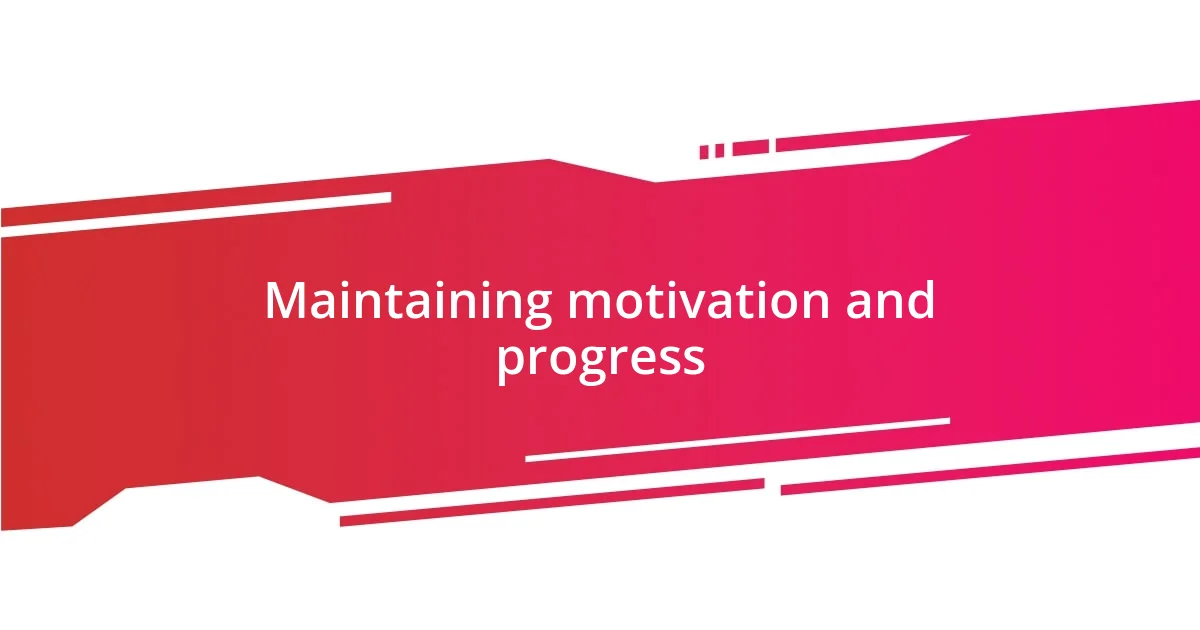
Maintaining motivation and progress
Maintaining motivation in my zero-waste journey can sometimes be a challenge, especially when the world around me feels overwhelmingly consumerist. I often find that reflecting on my initial reasons for embracing this lifestyle helps reignite my passion. For example, reminiscing about that first time I happily received compliments on my DIY produce bags reminds me of the impact my choices can have—and it feels like a warm boost of motivation. Have you ever found that reflecting on your journey can bring back that spark of inspiration?
Tracking my progress has become a crucial tool for keeping me engaged. I discovered that keeping a simple journal, where I note my successes and even my setbacks, makes me more accountable. The act of writing about my experiences not only helps me see how far I’ve come but also serves as a powerful reminder of my commitment. I remember feeling giddy when I logged my first month of zero waste with no disposable items in my trash. Isn’t it amazing how a few written words can transform your mindset?
Connecting with like-minded individuals or communities has also been a game changer for me. Whether it’s joining an online group or attending local workshops, sharing both struggles and successes with others reinforces my motivation. I once participated in a beach clean-up with fellow eco-warriors, and that collective energy sparked my drive to maintain my lifestyle changes. Have you ever felt empowered just by being part of a community that shares your values? It’s those connections that keep my enthusiasm alive, reminding me that I’m not alone on this journey.










